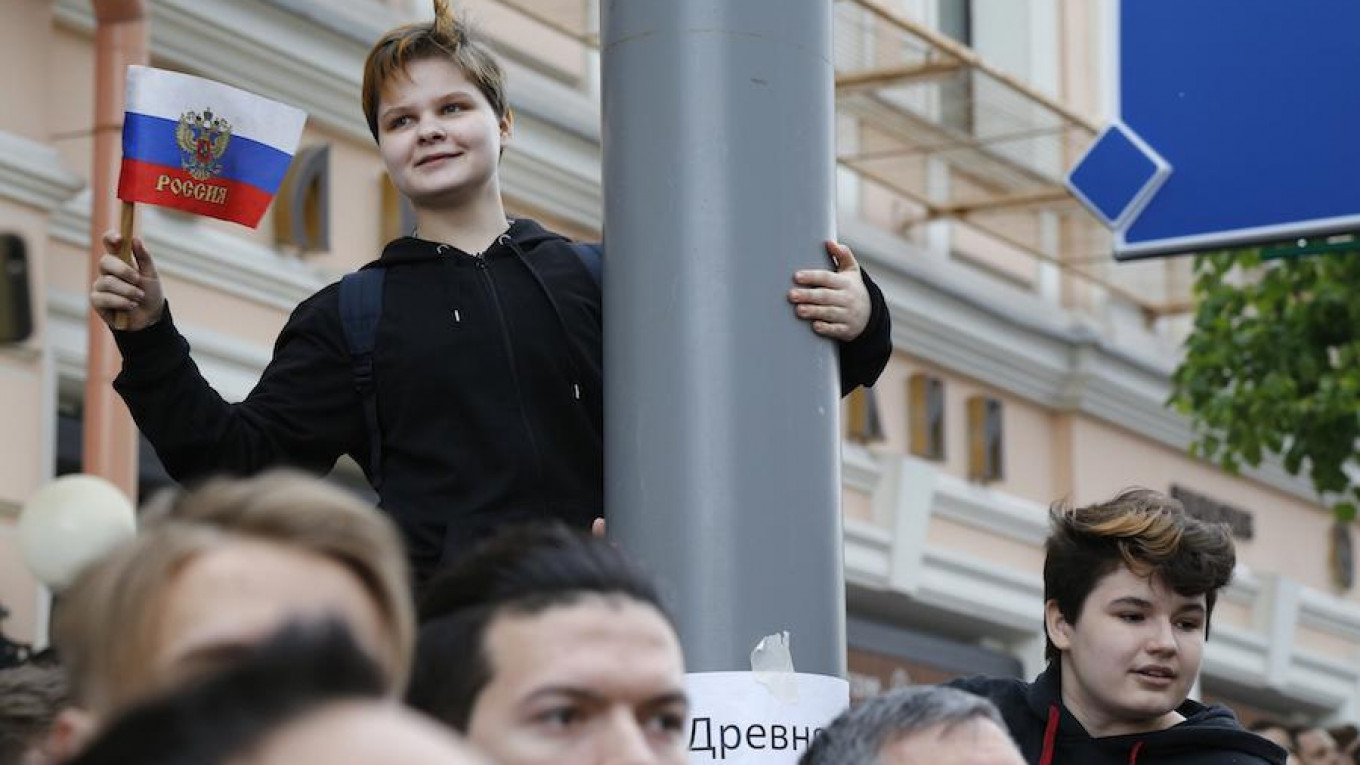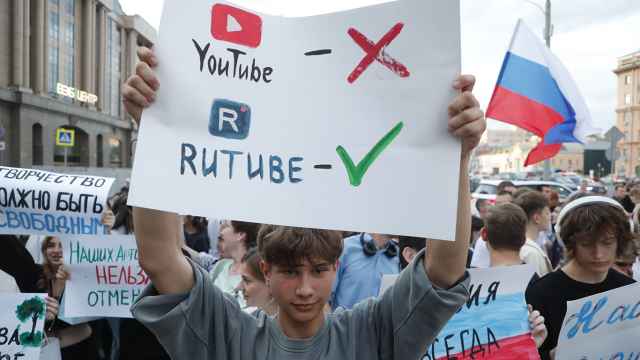Another week, another opposition tussle in Moscow. This time, riot police detained around a thousand anti-corruption protesters and beat up many more with truncheons—right after President Vladimir Putin told NBC that Russian police don’t beat people with truncheons.
But don’t be too hard on the poor guys (I mean the police.) They were probably just traumatized by their previous fiasco. I’m referring, of course, to the June 11 shootout in a Moscow region village, where a killer of four reportedly armed with WWII-era guns fought off the cops for hours and then escaped. That must have hurt their ego.
At least protesters—many of them teenagers—don’t put up so much resistance.
But let’s talk about the internet. I mean bill 195446-7, of course. The one proposing to finally bring the Russian internet up to the lofty standards of the Ministry of Public Security of China (公安部)—i.e. to ban TOR, Virtual Private Networks and other tools for circumventing online censorship.
Russia currently blocks 6.3 million websites, according to internet freedom watchdog Rublacklist.net. But besides a handful of porn sites, the torrent tracker Rutracker.org and that terrible menace to Russian law and order, LinkedIn, no one really knows most of these obscure sites.
Meanwhile, the websites, blogs and YouTube channels of protest leader Alexei Navalny are still going strong. So are a gazillion other sites that say not-so-nice things about the government. As the Chinese Ministry of Public Security demonstrates, it is entirely possible to block them all. So far, the Kremlin doesn’t appear to have the guts to do that. But who knows what the future holds?
The reason is simple: technophobic “sexagenarians.” Or, more precisely, the over-sixty folks who run this lovely little country from the active retirement home we call the Kremlin. Mr. Putin turns 65 on October 7 (don’t forget to send a birthday card). His Politburo is roughly of the same age, and so are most policy makers who matter. The few spring chickens in their midst—ahem, Dmitry “I was President” Medvedev, aged 51—meekly conform.
In other words, Russia is being run by the last Soviet generation. The collapse of the USSR brought them many new, confusing things: the internet, grassroots activism, civic society and the novel idea that an economy should be about more than tanks and missiles. Even “he who shall not be named by Putin”—opposition leader N*****y—is 41.
But the Russian leaders still live in 1978. To them, cybernetics is a capitalist fake science, the internet remains a CIA plot and any grassroots activism is no less than enemy instigation. So the leaders do the only sensible thing (to them): They fight to bring 1978 back again.
If that means banning the internet or beating up women and teens with truncheons (oh, to beat up the internet!), the worse for the internet, women and teens.
Still, there is some reason for optimism: The next generation, whatever its flaws, is much more comfortable with the 21st century. Even Medvedev has a beloved iPad. But the $64,000 question remains: How much will the legacy of the Soviet pensioners shape Russia before the new generation comes to power? Will a fear of modernity be enshrined as tradition?
One day in the not-so-distant future, when we all upload our minds to the Global Internet, Russia may still be barred from LinkedIn.
Unfair Observer is a secret Russian journalist offering a satirical take on the worst and most absurd developments happening in Russia every week.
A Message from The Moscow Times:
Dear readers,
We are facing unprecedented challenges. Russia's Prosecutor General's Office has designated The Moscow Times as an "undesirable" organization, criminalizing our work and putting our staff at risk of prosecution. This follows our earlier unjust labeling as a "foreign agent."
These actions are direct attempts to silence independent journalism in Russia. The authorities claim our work "discredits the decisions of the Russian leadership." We see things differently: we strive to provide accurate, unbiased reporting on Russia.
We, the journalists of The Moscow Times, refuse to be silenced. But to continue our work, we need your help.
Your support, no matter how small, makes a world of difference. If you can, please support us monthly starting from just $2. It's quick to set up, and every contribution makes a significant impact.
By supporting The Moscow Times, you're defending open, independent journalism in the face of repression. Thank you for standing with us.
Remind me later.






